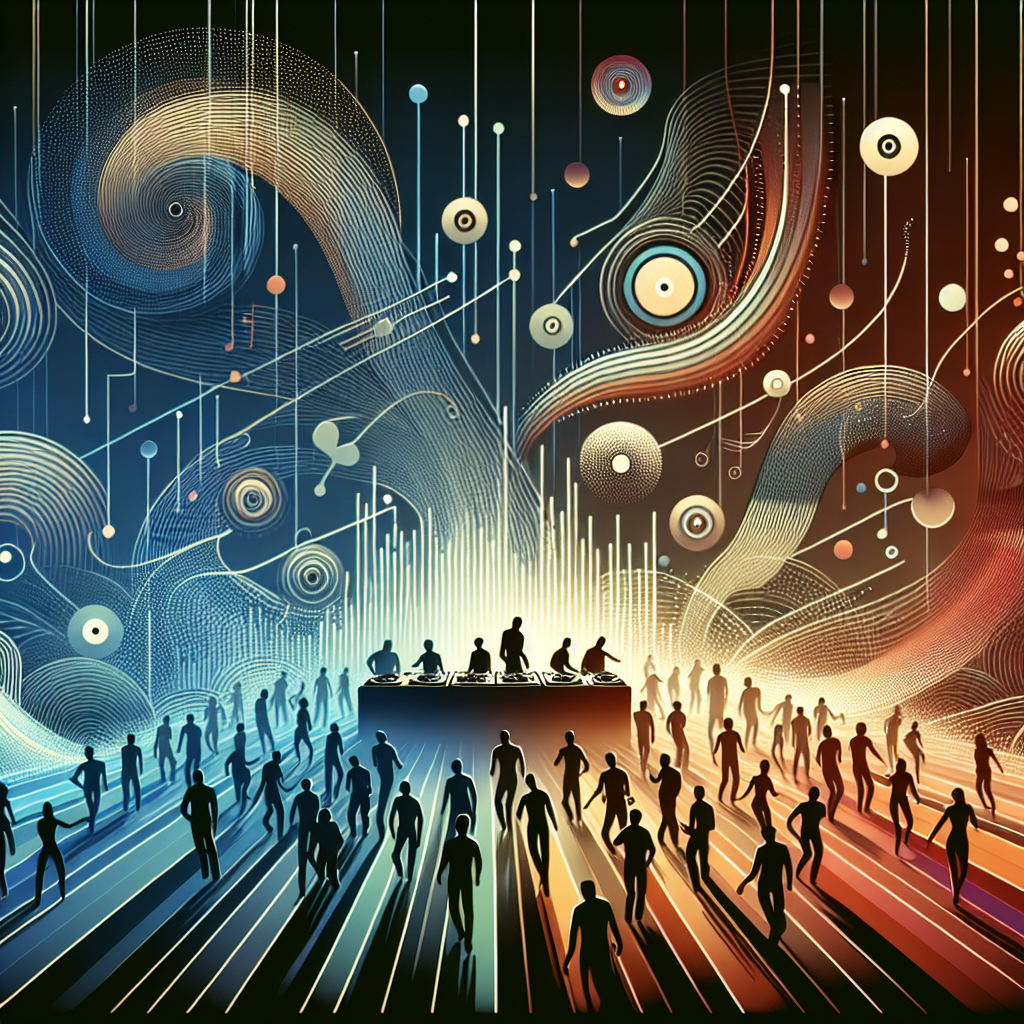Techno music, a synthesized electronic music genre, was born in Detroit, Michigan in the late 1980s. Its roots extend to the electronic musical developments of the 1970s and 80s, inspired by futurism and the principal need to break free from the sanctioned forms of musical expression.
The Genesis of Techno Music
In the beginning, techno music was a sub-genre, a fringe form of music appreciated by a niche audience. It was the creation of innovative artists like Kevin Saunderson, Derrick May, and Juan Atkins. These pioneers blended the repetitive beats of German artists such as Kraftwerk with Chicago’s house music and a hint of funk flavor from Europe.
Futurism and the widespread embrace of technology characterized the early journey of techno music. It was futuristic in its approach because it grappled with modern societal issues such as technological advancement, urban decay, and the dehumanization of the modern world.
Mainstream Recognition and Influence on Culture
By the beginning of the 1990s, techno music had begun to gain mainstream recognition. It diverged into a myriad of sub-genres such as dub techno, ambient techno, minimal techno, and others. Each of these sub-genres developed a distinct style, marking the complexity and diversity of the genre.
Techno music’s influence on other music genres such as house, trance, and electronic dance music (EDM) is undeniable. It laid the groundwork for the development of other electronic music styles and continues to influence popular culture.
The Age of Digital Techno
The 2000s ushered in the age of digital techno music. This was an era characterized by an increased use of software synths and digital production tools. It was during this period that techno music truly embraced the possibilities of the digital age. The shift to digital amplified the accessibility of techno music, encouraging more artists to experiment with the genre.
The Present and Future
Today, techno music has fully infiltrated mainstream music culture. It is a powerful player in the global music industry and continues to grow in popularity. Techno music festivals draw massive crowds, standing as testament to the genre’s vitality and influence. Despite the genre’s continued evolution and the emergence of various sub-genres, the essence of techno – its pulsating, hypnotic beat and its penchant for experimentation – remains untouched.
Conclusion
The evolution of techno music, from its inception in the urban landscape of Detroit to its dominant role in the global music industry, is a riveting exploration that comments on societal and cultural shifts and embraces the modern world’s pace. Its history is deeply woven with the advancement of technology and the evolution of music production techniques. Looking ahead, the future holds limitless potential for techno music. As technology continues to evolve at an unprecedented rate, so too will the sounds and rhythms of techno music, mirroring our ever-changing world.
FAQs
Q1: What is techno music?
A1: Techno music is a genre of electronic music that emerged in the late 1980’s in Detroit, Michigan. It is characterized by repetitive rhythms, synthesized melodies, and futuristic themes.
Q2: Who are the pioneers of techno music?
A2: The pioneers of techno music are primarily Juan Atkins, Kevin Saunderson, and Derrick May, known collectively as the “Belleville Three”. They blended elements of house music, funk, and electronic music to create techno.
Q3: When did techno music become popular?
A3: Techno music gained popularity in the mainstream music realm in the early 1990’s and has continued to grow and diversify since then.
Q4: How has techno music influenced other genres?
A4: Techno music has greatly influenced other electronic music genres such as house, trance, and electronic dance music. It has also had a significant impact on popular culture and music production techniques.
Q5: What is the future of techno music?
A5: The future of techno music holds boundless possibilities. As technology and music production techniques continue to evolve, so too will the genre, promising a wealth of innovative, fresh sounds that reflect modern society.




